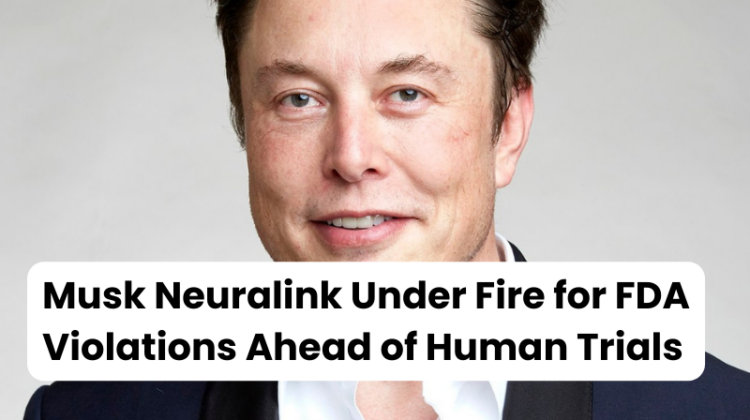
The U.S. Food and Drug Administration (FDA) recently uncovered issues with animal research practices at Neuralink, Elon Musk’s brain implant startup.
The findings raise questions about Neuralink’s readiness to begin human trials of its experimental brain-computer interface.
According to FDA inspection reports, inspectors found problems with record keeping and quality controls for animal experiments at Neuralink’s California research facility in June 2022.
________________________________________________________________________
- FDA inspectors found issues with animal research practices at Neuralink, including missing records and lack of quality control.
- Problems were uncovered at Neuralink’s California facility, raising questions about research integrity before the startup transitioned to human trials.
- The findings fuel debate about whether the FDA should have inspected Neuralink before clearing its brain implant for human testing.
________________________________________________________________________
Neuralink Under Fire for FDA Violations Ahead of Human Trials
The inspection of Neuralink’s Texas facility did not uncover any issues.
Problematic practices cited by the FDA include missing calibration records for lab instruments and a lack of documentation showing research protocols were followed.
Hundreds of animals, including monkeys, were used in Neuralink’s studies.
Proper documentation and quality controls are essential for ensuring the integrity and reliability of scientific data.
Former FDA official Jerry Chapman called the lapses a “lack of attention to detail” and said the company needs to ensure vigilant practices as it moves to human trials.
Substandard animal research practices undermine critical safety data regulators rely on when assessing risks of new medical devices like Neuralink’s brain implant.
The experimental Neuralink implant aims to help paralyzed patients and those with Lou Gehrig’s disease communicate using their thoughts.
Neuralink announced in May 2022 that it had received FDA clearance to start human trials, with the first patient implanted in late 2022 reportedly recovering well.
However, Neuralink’s animal research has faced scrutiny.
In December 2022, Reuters reported the U.S. Department of Agriculture was investigating complaints of rushed animal testing causing unnecessary suffering at Neuralink.
An animal rights group also filed complaints with the FDA and USDA over alleged lapses in animal welfare.
While the FDA inspection findings are serious, experts said they likely aren’t severe enough to prompt the agency’s worst violation designation or immediate action.
The FDA said Neuralink provided enough information for its human trial approval and will continue monitoring trial participant safety.
Some argue the inspection should have occurred before the human trial clearance, given prior concerns about Neuralink’s animal research practices.
As the agency has done in similar cases, former FDA official Victor Krauthamer said it would have been reasonable to inspect beforehand.
He said the violations reveal lapses in “fundamental requirements.”
The FDA findings raise questions about Neuralink’s lab processes as it ventures into human clinical research.
While the first implanted patient is reportedly doing well, rigorous protocols and controls will be critical to ensure participant safety.
The company must demonstrate reliable, compliant research practices for its futuristic brain implant technology to advance.

Leave a Reply